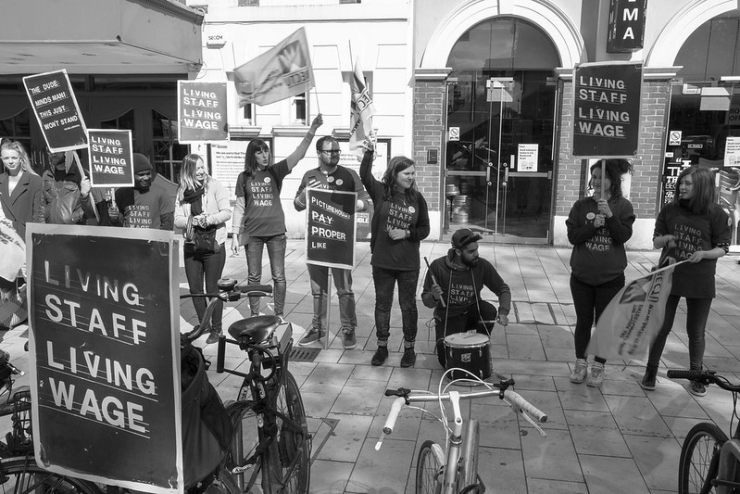
When it comes to the Eurozone, agreement is hard to find. One thing we have been agreeing on for quite a while now, however, is that the common currency remains a very long way from having the fiscal and banking unions that it arguably needs to be considered ‘complete’. The long-recognised problem in the Eurozone is simply stated: while monetary policy has been centralised at the European level (by being placed in the hands of the European Central Bank), fiscal and other economic policies remain largely decentralised in the hands of national governments. Solving this problem, however, is far from simple, and is currently thought to be politically unachievable.
The Eurozone’s odd institutional architecture harks back to another rare point of agreement, one on which the common currency was ultimately founded. In simple terms, by the time of the euro’s conception, monetarist ideas on how to manage the economy had won the intellectual debate and underpinned a broad consensus which held that independent central banks primarily tasked with achieving price stability shall be the principal guarantors of overall macroeconomic stability.
The triumph of monetarism and its feeding into an overarching policy consensus was closely linked to the increasingly evident failure of the previously dominant Keynesian paradigm which could not account for and deal with the prolonged problems of a new phenomenon of ‘stagflation’ from the late-1960s to the early-1980s (broadly defined as stagnant growth, high unemployment, and high inflation). The choice of monetary policy as the primary tool for stabilisation was politically expedient in Europe, in so far as it meant that the centralisation of an even more politically sensitive policy field, namely that of fiscal policy, would not be necessary for the time being. Though far from uncontested, it turned out to be the lowest common denominator on which EMU could ultimately be built.
The limitations of this founding consensus – however useful it was to enable the euro project at the time of Maastricht – were laid bare for everyone to see during the painful and protracted crisis of the Eurozone. They have entailed a multitude of coordination failures and have led to the undersupply of macroeconomic stabilisation throughout the crisis, fuelling political tensions across the continent. This has led some to contemplate a break-up of the union to free its members from their supposed monetary straightjacket, and even observers principally in favour of the common currency continue to take the improbability of meaningful Eurozone integration for granted. The time never seems to be ‘right’ for courageous steps forward.
Yet, in the midst of omnipresent EMU-pessimism, the successive surprise victories of the centrist pro-European Emmanuel Macron in the French presidential and legislative elections have provided some new impetus for the venture of completing Europe’s monetary union. Macron not only campaigned on principled domestic labour market reforms, but also propagates an ambitious Eurozone reform agenda including a fiscal capacity equipped with borrowing capabilities as well as a Eurozone finance minister. Whether and in which form these propositions will ultimately be shared by the other Eurozone members remains to be seen. The Germans, preoccupied with forming a government for the time being, have been sending ambiguous signals in this regard at best.
Nonetheless, far from being just a one man (or one Macron) show, some identify the French President’s ambitions as being part of a wider pro-European reaction to the twin electoral upsets of 2016 – the Brexit vote and the election of Donald Trump – which appear to have reinforced popular support for the European project across the union, including in Germany. Yet, while we are quick to get caught up in the big shifts and bigger headlines of world politics, it is easy to lose sight of some of the more piecemeal, gradual changes at play. If some degree of intellectual macroeconomic consensus is indeed necessary for major steps toward integration, just as it was for the adoption of the euro, what can be said about the state of that very consensus today?
Early and major responses to the Eurozone crisis have pointed to a continuation of the old consensus, with much of the heavy-lifting ultimately falling to the ECB and with limited to no substantial fiscal integration (beyond ostentatious reinforcement, but actual flexibilisation, of fiscal rules). However, the protracted nature of the crisis and the continuation of sluggishness could pave new ground for rare moments of agreement. The idea of the ECB (and other major central banks, for that matter) becoming ‘the only game in town‘ and being ‘stretched to the limit‘ is commonplace now across otherwise fiercely opposed participants in the debate – as are the shortcomings of this very situation.
The issue at stake is not only that the ECB’s monetary policy actions had to become ever more unconventional due to the lack of fiscal support to avoid financial calamity at the height of the crisis. It also increasingly appears to be the case that monetary authorities are facing difficulty in achieving their core mandate of price stability by themselves (defined as an inflation rate below, but close to 2% in the Eurozone). The monetarist paradigm could thus be facing its moment of truth due to a failure to account for and tackle what we may call a phenomenon of ‘staglowflation’ in spite of unprecedented monetary expansion (i.e., slowly reigniting growth, high but decreasing unemployment, and persistent low inflation despite ultra-low interest rates).
One of the strongest indications that our macroeconomic compasses have gone astray are probably the calls from (European) central bankers themselves, who are increasingly reaching out to fiscal, wage and other policy-makers for support, as they are preparing their delicate exit from unconventional monetary policy. Hearing, and heeding, these calls could be a first step for different sides in the Eurozone debate to agree on. One the one hand, proponents of a completion of EMU have long advocated ambitious moves towards further integration – the limitations of overstretched monetary policies provide their calls with additional weight.
On the other hand, decision-makers once again calling for a limited role of the ECB – through the restoration of neatly-circumscribed central bank independence and a conservative central bank chief favouring more narrow, conventional monetary policies – can have their way, too: taking some of the burden off the ECB’s shoulders would allow the central bank to become more monetarist once again, so to speak (e.g. under the auspices of a presumably more orthodox ECB president of the likes of current Bundesbank head Jens Weidmann).
Admittedly, this kind of technical compromise may seem a rather unexciting point to single out as the basis for such momentous political projects as fiscal and banking union in Europe. And, to be sure, it remains far from certain whether a meaningful overhaul of the Eurozone is about to happen any time soon, as formidable obstacles persist (not least including the issue of a lengthy and uncertain change of European treaties).
But if eminent academic accounts of the creation of EMU are anything to go by, then it is precisely such consensus at the technical level that is a necessary, if not sufficient, condition for far-reaching progress – as it was for the momentous political decision to go ahead with monetary unification. While a new encompassing paradigm may not be fully fleshed out and established yet, agreeing that the prevailing consensus has reached its limits is a major first step. In this important respect, a more complete EMU may not be as improbable a prospect as we have forced ourselves to believe for too long.
♣♣♣
Notes:
- This blog post appeared originally on LSE Europp.
- The post gives the views of its author, not the position of LSE Business Review or the London School of Economics.
- Featured image credit: Maslmaslmasl, under a CC BY-SA 4.0 licence
- When you leave a comment, you’re agreeing to our Comment Policy.
 Sebastian Diessner is a PhD candidate in political economy at the LSE’s European Institute. His research interests include central bank independence and accountability, Eurozone macroeconomic governance, financial regulation, and quantitative and qualitative methods in the social sciences.
Sebastian Diessner is a PhD candidate in political economy at the LSE’s European Institute. His research interests include central bank independence and accountability, Eurozone macroeconomic governance, financial regulation, and quantitative and qualitative methods in the social sciences.





